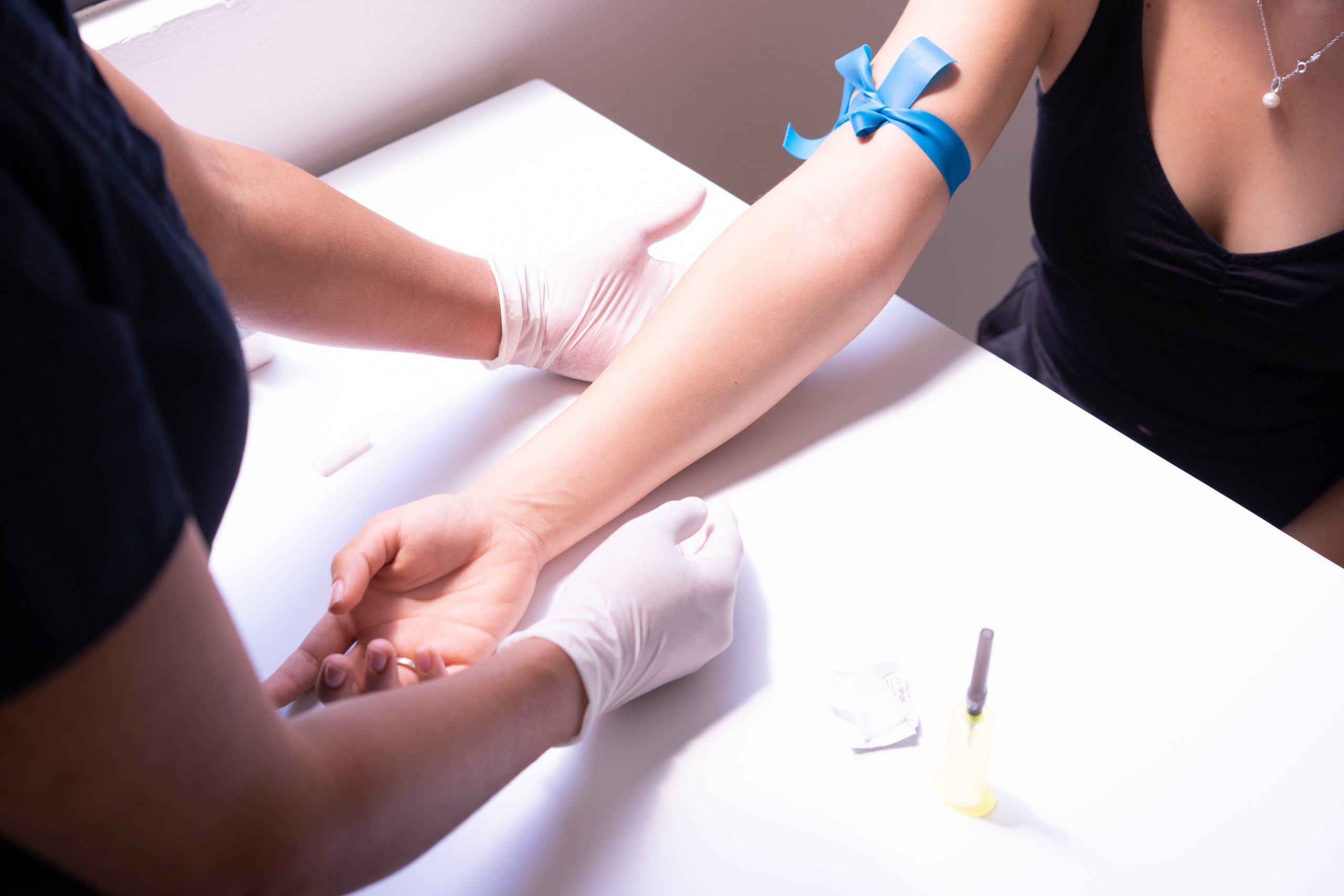
More than 100 million Americans are living with abnormal blood sugar. Is it possible that you could be one of them? A simple A1c screening blood test shows when levels are too high. Elevated blood sugar means higher risk for diabetes.
A glycated hemoglobin, or hemoglobin A1C, test (HbA1c) is one screening test that checks blood sugar levels. Results show how much sugar is in the bloodstream over time. Testing is accurate since values are not affected by acute illness or stress. A1c screening is recommended for certain populations, including overweight adults and those with other risk factors.
Those thinking about blood sugar testing or wondering about risk factors should talk to their doctor. Here are some common questions about diabetic screening and A1c testing.
The A1c test can detect diabetes because it measures how much sugar, called glucose, is found in red blood cells. The red blood cells give a “glycemic history” of the past 120 days.
Everyone has sugar in their blood. But diabetics have higher levels. Blood sugar that is too high leads to cell and tissue damage.
When someone is diagnosed with diabetes, their doctor will also use the A1c test to monitor how the disease is being controlled.
A1c readings are measured in percentage. Here is what A1c results mean.
Higher blood sugar levels cause greater A1c values, and they equal greater risk for diabetes.
Early detection is key in diabetes because early treatment can prevent serious complications. When a problem with blood sugar is found, doctors and patients can take steps to prevent permanent damage to the heart, kidneys, eyes, nerves, blood vessels, and other vital organs.
Here are the current recommendations for A1c screening.
The CDC suggests A1c screening to know a baseline for:
They further recommend that any woman who has ever had gestational diabetes should have an A1c check every three years even if results are normal.
The USPTF also says that adults over age 45 should be checked for diabetes using the A1c test. Furthermore, it recommends repeat testing every three years.
The ADA also recommends the A1c test, or other diabetic screening, for all adults at age 45 and over. Additionally, it advises overweight individuals with one or more risk factors to be screened, regardless of age. If results are normal, repeat screening is recommended every three years or less.
How to Get an A1C Test
If you meet some of these guidelines, you might be wondering how you can get a screening test.
A primary care doctor or other licensed provider can order this common blood test. Results take as little as a few business days.
Those who do not have a doctor to order the test, can still get this valuable screening. An online doctor or virtual physician can help. Telemedicine providers work with laboratory partners to treat patients without unnecessary trips to an office.
An online physician sends referrals and lab orders just like a brick-and-mortar doctors office. After going to a lab for blood work, virtual doctors offices schedule follow up video visits to go over the results, answer questions, and discuss treatment plans.
If you would like to talk with one of our board-certified physicians, book and appointment today. My Virtual Physician offers health screening, lab tests, and counseling to meet all of your healthcare needs.
If you have suggestions for other topics you want to read about, let us know! Don’t forget to follow us on social media.